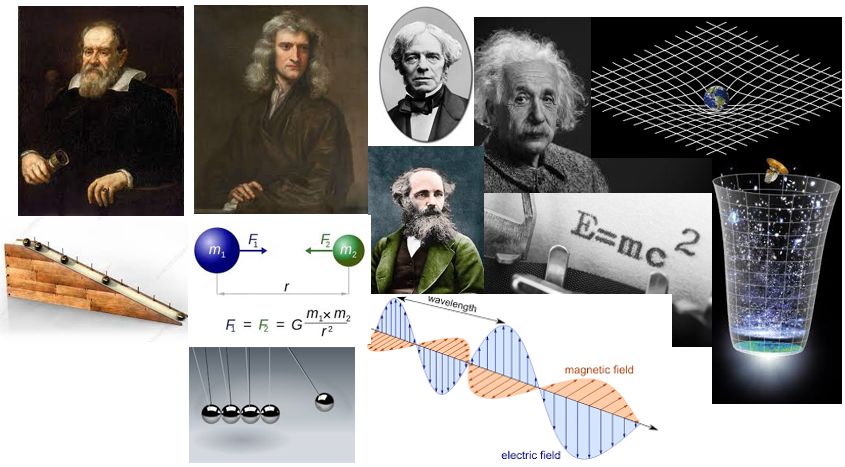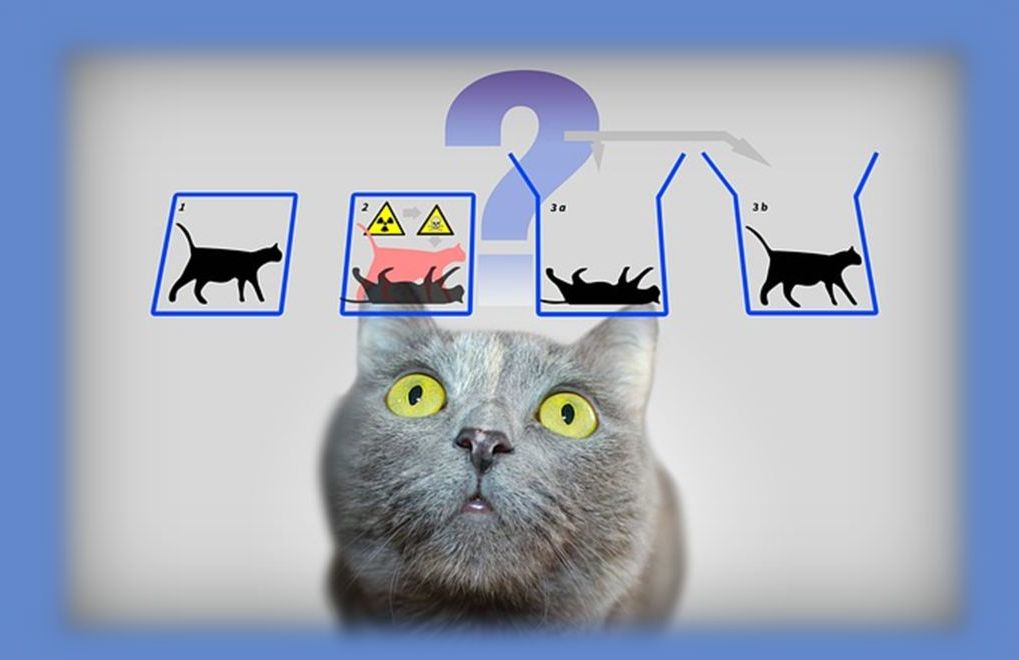My Courses
What you'll learn:
-
The conceptual foundations of Quantum Physics.
-
A comprehensive A-Z guide that will save you a ton of time in searching elsewhere trying to piece all the different information together.
-
Quantum Theory without falling into oversimplifications or hyped versions and yet conceived for an audience of non-physicists.
-
The double silt experiment, wave-particle duality, entanglement, superposition, uncertainty principle, Schrödinger's cat, quantum tunneling, and much more.
-
A course that fills the gap between a too popularized version of Quantum Mechanics and high-level university courses.
-
You will learn all the basics, enabling you to distinguish between mere speculative interpretations in fashion and real experimental facts.
Requirements
-
Most of the lectures require no math, with exception of a few parts which resort briefly to some basics of high school math, algebra, and calculus. Otherwise, no prerequisites or math are needed (though students with a technical background may have an advantage.)
-
It is not a university-level physics course. However, it raises the level beyond a standard popular science lecture. This means that you will take your time to go through some material more than once.
Description
This is an overview of the conceptual foundations of physics, from its inception in the 17th century with Galileo Galilei and Newton to the 20th-century physics of Einstein (and somewhat beyond). It is for those who would like to get an overview at a bit higher level of popularized science but less than an academic one, and without having to piece together with long searches all the concepts from different sources. Special emphases are set on the philosophical implications of the 20th-century findings such as determinism and final causes in physics.
Who this course is for:
- People passionate about science are looking for a serious and rigorous introduction to the basics of modern physics beyond the oversimplified representations of media hypes but without having to attend college.
- This course is also good preparation for my other Udemy course: "Quantum Physics: An Overview of a Weird World".
What you'll learn:
-
More on the conceptual foundations of Quantum Physics.
-
Quantum Theory without falling into oversimplifications or hyped versions and yet conceived for an audience of non-physicists.
-
Pauli's exclusion principle, Feynman path integrals and diagrams, Aharonov-Bohm effect, quantum Zeno effect, Bell's theorem, the 'which-way, and quantum eraser experiments, interaction-free experiments.
Requirements
-
The Udemy course "Quantum Physics: an overview of a weird world (Basics)".
- Some lectures resort to beginners level math, in a few cases high school mathematical basics, but no university-level required.
- In case you need a mathematical refresh an appendix will help you to recall some elementary mathematical concepts (Pythagorean theorem, square root, exponential, sin/cos functions, Cartesian coordinates, vectors, intuitive concept of a derivative, basic notion of a complex number).
Description
This is a supplement and continuation of the Udemy course "Quantum Physics: an overview of a weird world (Basics)". The first part furnished the basics of Quantum Physics, this part dwells deeper into other aspects. Topics addressed are the stability and solidity of matter, the Bell's inequality and Bell theorem, the Aharonov-Bohm effect, Feynman path integrals and Feynman diagrams, and the quantum Zeno effect, the 'which-way, and quantum eraser experiments, interaction-free experiments, and Wheeler's delayed-choice experiment and quantum teleportation (an intro to quantum computing, quantum cryptography and the interpretations of quantum mechanics is coming soon). It may also be interesting for physicists who want to deepen their conceptual foundations that conventional colleges do not deliver.
Who this course is for:
- Everyone who is passionate about science and/or philosophy of science and is curious about the laws and the nature of the material universe.
- The course is well suited for all those university students who do not have sufficient mathematical background to go through a high-level QM course but would like to assimilate the basics of quantum physics for the purpose of additional research. For instance philosophers, historians of science, IT students, engineers.
The Adventure of Consciousness
Bridging Science, Consciousness Studies, Philosophy and Spirituality with a Post-Material Synthesis of Knowledge
Course Overview
A philosophical, scientific, and spiritual overview of the relationship between science, consciousness studies, the mind, the mystery of consciousness, neuroscience, philosophy, spirituality, the nature of reality, evolution, and life.
A course for the scientific- and philosophical-minded who would like to expand their intellectual and intuitive horizon beyond the straitjacket of materialism. For those who feel there is something more, but struggle with connecting the dots into a more coherent picture supported by a way of seeing that allows us to overcome the present paradigm and yet maintains a scientific and conceptual rigor, without falling into oversimplifications. A critique of physicalism, the still-dominant doctrine that believes that all reality can be reduced to matter and the laws of physics alone. A review and reassessment of the old and new philosophical and metaphysical ideas which attempts to bring closer Western and Eastern traditions where science, philosophy, consciousness, Spirit, and Nature are united in a grand vision that transcends the limited conventional scientific and philosophical paradigm. A possible answer to the questions of purpose and meaning and the future evolution of humankind beyond a conception that posits a priori a purposeless and meaningless universe.
A report of the new scientific discoveries of a basal intelligence in cells and plants, on the question if mind is computational, the issue of free will, the mind-body problem, and the so-called ‘hard problem of consciousness’. A look into the recent revival of panpsychism and theories of universal consciousness. A journey into quantum physics from the perspective of philosophical idealism and an invitation to adopt new ways of seeing that might help us to transform our present understanding, expanding it into an integral cosmology, with a special emphasis on the spiritual and evolutionary cosmology of Sri Aurobindo.
Physics: from Galileo to Einstein

To organise a course at least 5 participants are needed. Contact me at
Description
The course covers the basics of classical physics and relativity. From Galileo and Newton, e Boltzmann's entropy, celestial mechanics, statistical mechanics and the advent of determinism, deterministic chaos, and Einstein's (special and general) relativity. It is an intermediate-level course--that is, neither a high-level university course nor a too simplistic introduction. This course could be a valuable preparation for the Udemy course "Quantum Physics: An Overview of a Weird World (Basics)".
Who this course is for:
- Everyone who is passionate about science and/or philosophy of science and is curious about the laws and the nature of the material universe.
- The course is well suited for all those university students who do not have sufficient mathematical background to go through high-level physics courses but would like to assimilate the basics of classical physics for the purpose of additional research. For instance philosophers, historians of science, IT students, and engineers.
Requirements
- Some lectures resort to beginner-level math, in a few cases high school mathematical basics (for example, Pythagorean theorem, square root, exponential, sin/cos functions, Cartesian coordinates, vectors), but no university-level required. If you need a mathematical refresh, an appendix will help you recall some elementary mathematical concepts. However, 90% is math-free and you can follow the rationale even without it.
Structure
10 weekly lectures (25-30 mins. average) with Q&A sessions.



